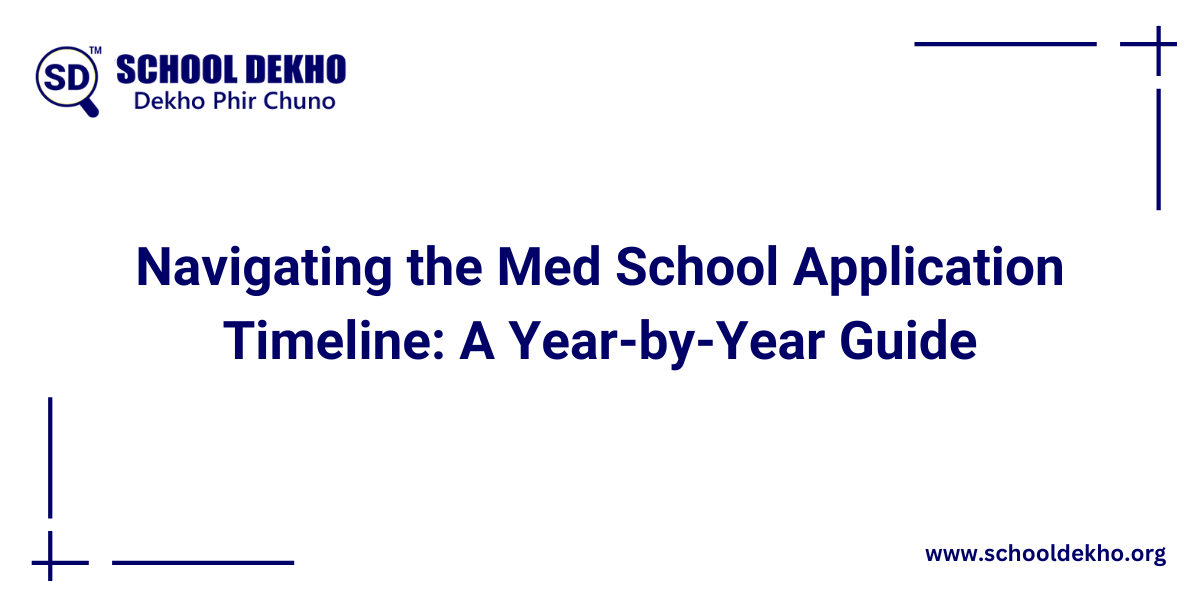
Navigating the Med School Application Timeline: A Year-by-Year Guide
Applying to medical school can be a difficult process, filled with numerous requirements, deadlines, and decisions. To help prospective medical students navigate this complex journey, it’s essential to have a clear timeline that outlines the key milestones from undergraduate studies through application submission.
This guide provides a comprehensive year-by-year breakdown to ensure you stay organized and prepared for each step of the medical school admissions process.
Year 1: Laying the Foundation
Focus on Academics and Exploration
a) Course Selection: Start strong by taking foundational courses in biology, chemistry, and physics. Aim for a solid GPA, as your academic performance will be critical for medical school applications.
b) Explore Interests: Join pre-med clubs or organizations at your university. This involvement will help you connect with like-minded peers and provide networking and mentorship opportunities.
c) Volunteer Opportunities: Seek out volunteer experiences in healthcare settings. This could include shadowing physicians, working in hospitals, or participating in community health initiatives. Early exposure to the medical field will help you confirm your interest in medicine.
Year 2: Building Experience
Deepen Your Commitment
a) Continue Coursework: Maintain your focus on science courses while also exploring electives that interest you. Consider taking courses in psychology or sociology to understand patient care from different perspectives.
b) Get Involved: Take on leadership roles in pre-med organizations or start new initiatives that promote health awareness on campus. These experiences will enhance your application and demonstrate your commitment to medicine.
c) Research Opportunities: Look for research opportunities with faculty members in the sciences or healthcare fields. Participating in research can provide valuable insights into the scientific process and improve your critical thinking skills.
Year 3: Preparing for the MCAT
Strategize Your Study Plan
a) MCAT Preparation: Prepare for the Medical College Admission Test (MCAT) early in your junior year. Create a study schedule that allows ample time for review and practice tests. Consider enrolling in an MCAT prep course if you need structured guidance.
b) Finalize Your Extracurriculars: By now, you should have a well-rounded portfolio of extracurricular activities, including volunteer work, research, and leadership roles. Focus on deepening these experiences rather than spreading yourself too thin.
c) Letters of Recommendation: Start thinking about potential referees for your letters of recommendation. Approach professors or supervisors who know you well and can speak positively about your abilities and character.
Year 4: The Application Process
Final Preparations and Submission
a) Complete Your MCAT: Aim to take the MCAT by spring of your senior year. This timing allows you to receive scores before application deadlines while leaving room for retakes if necessary.
b) Research Medical Schools: Begin researching medical schools thoroughly. Consider factors such as location, curriculum style (traditional vs. problem-based learning), and special programs that align with your interests.
c) Personal Statement Writing: Start drafting your personal statement early. Reflect on your motivations for pursuing medicine, significant experiences that shaped your decision, and what makes you a unique candidate. Seek feedback from a medical school application consultant to refine your narrative.
d) Application Submission: Most medical schools participate in the American Medical College Application Service (AMCAS). Prepare to submit your application by the summer before you plan to start medical school. Ensure all components—transcripts, letters of recommendation, and personal statements—are complete and polished.
Post-Application Phase
Interviews and Final Decisions
a) Prepare for Interviews: If selected for interviews, begin preparing by practicing common interview questions and participating in mock interviews. Focus on articulating your passion for medicine and how your experiences have prepared you for a career as a physician.
b) Follow Up: After interviews, send thank-you notes to interviewers expressing gratitude for the opportunity to meet with them. This small gesture can leave a positive impression.
c) Decision Time: As acceptances come in, take time to evaluate each offer carefully. Consider factors such as program fit, financial implications, and personal preferences before making your final decision.
Final Thoughts
The journey to medical school is filled with challenges but is also incredibly rewarding. By following this year-by-year timeline, you can stay organized and focused throughout the application process.







Leave your thought here
Your email address will not be published. Required fields are marked *